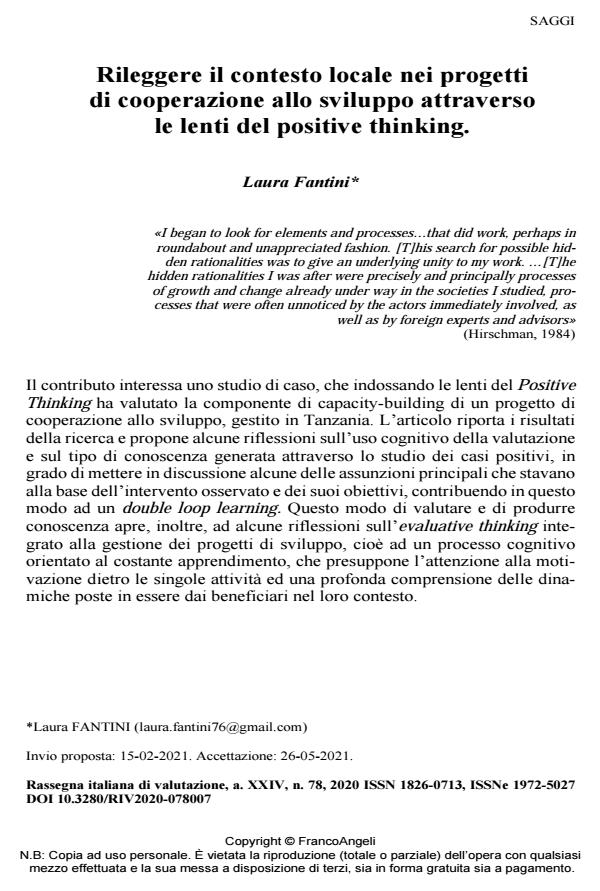Rileggere il contesto locale nei progetti di cooperazione allo sviluppo attraverso le lenti del positive thinking
Journal title RIV Rassegna Italiana di Valutazione
Author/s Laura Fantini
Publishing Year 2022 Issue 2020/78
Language Italian Pages 19 P. 117-135 File size 222 KB
DOI 10.3280/RIV2020-078007
DOI is like a bar code for intellectual property: to have more infomation
click here
Below, you can see the article first page
If you want to buy this article in PDF format, you can do it, following the instructions to buy download credits

FrancoAngeli is member of Publishers International Linking Association, Inc (PILA), a not-for-profit association which run the CrossRef service enabling links to and from online scholarly content.
Laura Fantini, Rileggere il contesto locale nei progetti di cooperazione allo sviluppo attraverso le lenti del positive thinking in "RIV Rassegna Italiana di Valutazione" 78/2020, pp 117-135, DOI: 10.3280/RIV2020-078007